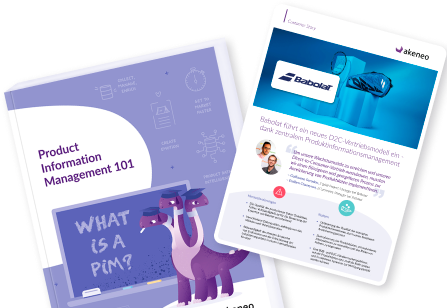Jun 17, 2019
Welcome to “How PIM Solves Problems” a recurring, multi-part look at how Product Information Management solutions can be used to solve common problems...

Welcome to “How PIM Solves Problems” a recurring, multi-part look at how Product Information Management solutions can be used to solve common problems in various markets and industries. First up? Industrial Manufacturing.
Rumors of the demise of industrial manufacturing may have been greatly exaggerated.
While anyone who’s listened to media reports in recent years has heard tales of vanishing industrial manufacturing jobs, particularly in developed economies in areas like North America and Europe, the space still drives massive amounts of revenue. In the United States alone, industrial manufacturing produced $2.33 trillion last year, good for more than 10 percent of the U.S.’ economic output, according to the Bureau of Economic Analysis, and account for half of U.S. exports.
But while there’s no shortage of rewards for companies in the space, challenges abound.
Industrial manufacturers have a long list of hurdles they need to clear before they can find success. Large product catalogs and massive internal teams often mean these companies struggle with digitization and eCommerce efforts, tend to manage product data in ERP and PLM systems, and lack a logical place to manage marketing product data. What’s more, these companies typically exchange data regarding highly technical products in very specific formats.
Fortunately for industrial manufacturers, Product Information Management (PIM) and Product Experience Management (PXM) solutions can help them clear these hurdles. PIM and PXM are designed to enable manufacturers to more efficiently and easily manage large product catalogs and prepare for a successful transformation to eCommerce. As a result, industrial manufacturers typically report increased conversion, reduced returns, and significantly increased marketer productivity after adopting PIM.
But how do PIM and PXM help you and your company solve these industrial manufacturing challenges? Allow us to explain.
One of the biggest sore spots for industrial manufacturers when it comes to digitization arises when the company decides to open up a digital commerce channel.
While omnichannel commerce can have serious advantages for those who do it right, adding new channels can be particularly challenging for industrial manufacturers. The typically massive size of their product catalogs, for instance, often means extra time and effort when it comes time to update product information online or add a new channel. Making matters more difficult, these catalogs are typically filled with highly technical products, which require even more commitment and management.
PIM and PXM, however, can make the enrichment process far easier. By using business rules engines and validation workflows, for example, you can easily eliminate tedious, repetitive tasks and ensure that only accurate, consistent, and contextual product information is presented to customers.
Simply enriching your catalog once is not enough, however. Product information also needs to be frequently updated to reflect changes in a product, better fit a new platform.
Making these updates and changes can be just as daunting as initially enriching information, however. What’s more, as new products are added to existing catalogs, these larger catalogs are typically more difficult to manage efficiently and effectively, and the challenges grow even greater when dealing with the kind of highly specific and technical data that industrial manufacturers typically handle.
By using PIM and PXM solutions, however, industrial manufacturers can transition to digital commerce successfully and sustainably. The scalable, flexible structure of PIM, paired with a visual enrichment interface designed for marketers and other tools and capabilities, allows your company to make updates and changes to product catalogs easily and efficiently.
It’s not just the highly technical nature of product data that can cause industrial manufacturers to struggle with product information management, however. This data is also typically expressed and exchanged in unusual, highly specific formats.
These formats do offer advantages to industrial manufacturers, such as better communication between suppliers and distributors, reduced costs, and accelerated time-to-market. However, they can also make it harder to manage product information and assets for omnichannel commerce. PIM and PXM, however, are specifically designed to manage data in these unusual formats. This will help your team more efficiently and easily manage product data and descriptions.
What’s more, PIM can also help your team more efficiently and easily implement data government and management processes and procedures. Use your PIM to identify missing or incorrect data, establish governance policies, fix and correct incorrect or low-quality data, and maintain and update your data governance plan to ensure your customers are only given accurate, compelling, and consistent product information.
Efficiently handling data is only half the battle, however.
In an information-heavy space like industrial manufacturing, your company also need to be able to seamlessly communicate and manage data across multiple data management tools and systems, including DAMs, ERPs, and more. It may sound simple, but managing your product information and specifications across all of the different data systems you have is often easier said than done.
Fortunately, PIM can help your team simplify data management by integrating disparate systems and tools via our network of open-source connectors. This will help prevent errors or inconsistency in product data and help your team work faster and more efficiently.
In the digital age, speed is king. Your team needs to be able to move quickly, getting products to market as fast as possible, in order to keep up with ever-evolving customer trends and demands.
Akeneo PIM speeds the product information management and new product introduction process so you can get your products to market faster — across all channels and regions — with a range of features designed to boost productivity. These include automation features, which help remove repetitive, tedious tasks from your team’s plates, validation features, which can ensure that enriched product information is approved and updated as soon as possible, and completeness features, which structure your team’s workflow across channels and locales, allowing them to focus on what matters most and become more productive in the process.
Use PIM features like automation, validation, and workflow controls to eliminate unnecessary and repetitive tasks. That way you can manufacture and sell more products, more quickly, boosting revenue and improving relationships along the way.
It isn’t easy to be an industrial manufacturer these days — but PIM and PXM can help. By using product information and product experience management solutions to enrich and manage your product data, your team can expand to new channels and locales more efficiently, handle industry-specific data formats with ease, and boost their productivity.
Solve your problems with PIM! Discover how Product Information Management and Product Experience Management can help you conquer common industry challenges by registering for a demo! Want to learn more about the basics of PIM? Download our eBook Product Information Management 101 today!
Sign up for our newsletter and stay ahead of the curve on everything you need to know about product information management, product experience management and how to unlock growth for your organization.
